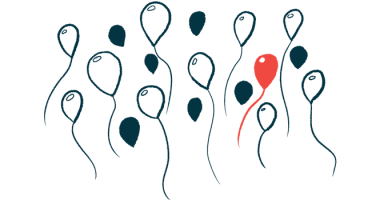Preventive Heme Therapy Decreases Attacks and Improves AIP Patients’ Quality of Life, Study Finds

Prophylactic (preventive) treatment with heme reduces the frequency of acute attacks, improving the quality of life and reducing healthcare costs of patients with acute intermittent porphyria, a study has found.
The study, “Benefits of prophylactic heme therapy in severe acute intermittent porphyria,” was published in Molecular Genetics and Metabolism Reports.
Porphyrias are a group of genetic metabolic disorders characterized by the body’s inability to produce heme — a molecule essential for red blood cells’ oxygen transport and compounds’ breakdown in the liver.
Acute intermittent porphyria (AIP) is the most common and the most severe form of acute porphyrias. It is characterized by attacks of severe abdominal pain, high blood pressure, and fast heartbeat that may require hospitalization.
Patients with recurrent AIP attacks (more than three per year, with at least one requiring intravenous heme therapy) are less productive and have a worse quality of life.
In this study, a team of researchers from the Wake Forest University/NC Baptist Medical Center in the U.S. described the clinical cases of two patients who received prophylactic heme therapy every week to minimize the frequency of recurrent AIP attacks.
The prospective, observational, longitudinal study accompanied two AIP patients — a 22-year-old woman and a 59-year-old man — who were treated with Panhematin (an injectable hemin formulation) once-a-week, for 11 months.
Results showed a 100% reduction in the frequency of acute attacks for both patients over the course of the study. In addition, researchers also observed a decrease of 75% in one patient and 100% in the other of hospital admissions during the same period of time.
The significant reduction of acute AIP attacks requiring hospital admissions and emergency room visits also translated to a decrease in healthcare costs and a significant improvement in the patients’ overall quality of life.
“In conclusion, our subjects experienced better quality of life with weekly planned prophylactic IV [intravenous] heme, when compared to ED [emergency department] and in-patient management of acute attacks in cases with recurrent acute attacks of AIP. Weekly regimens also significantly reduced both direct and total costs for the health care systems and led to better reimbursements to our healthcare system,” the researchers wrote.
“We suggest that, in carefully selected and appropriate patients, a planned weekly outpatient regimen with a multi-disciplinary approach, will prove beneficial for the well-being of similar patients with acute hepatic porphyrias, and also facilitate more efficient, humane, and appropriate health care delivery,” they added.
Finally, the researchers concluded that additional studies will help to better understand the financial and life quality benefits of preventive heme therapy for these patients.






